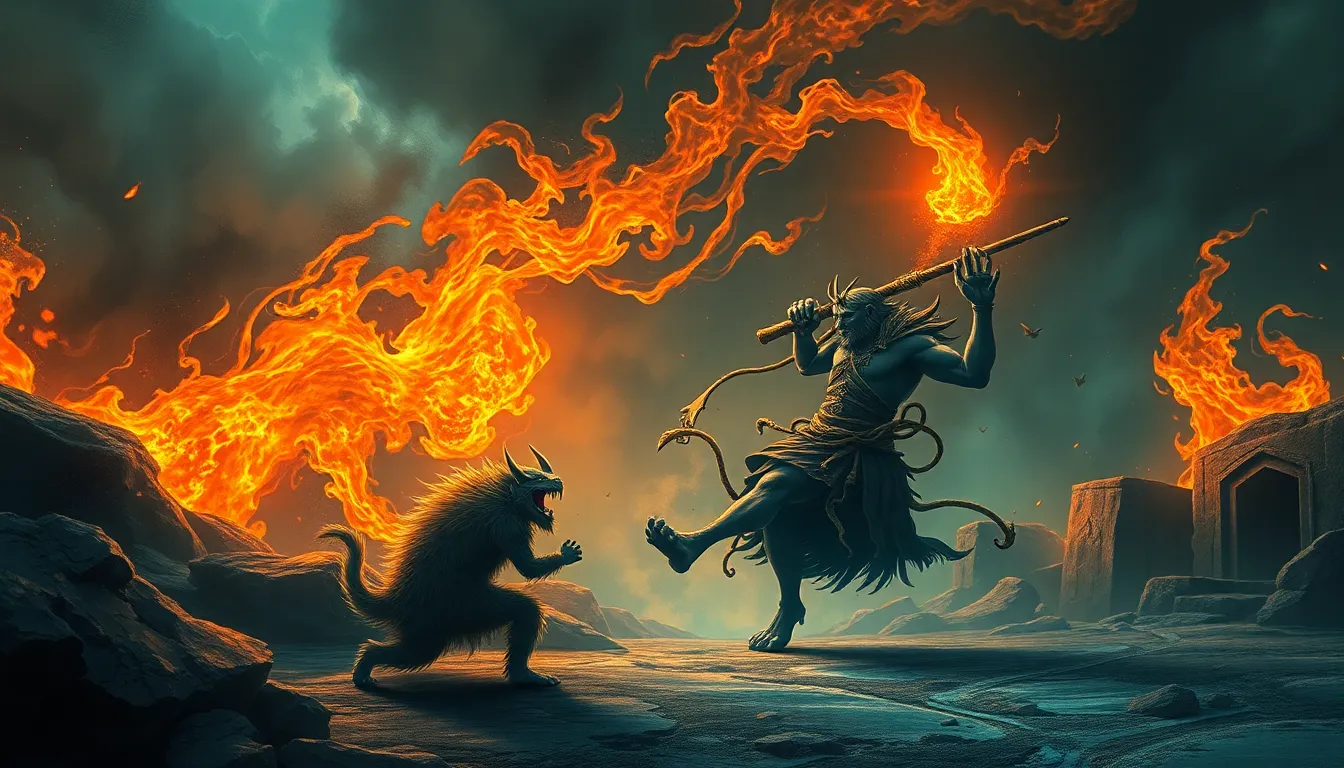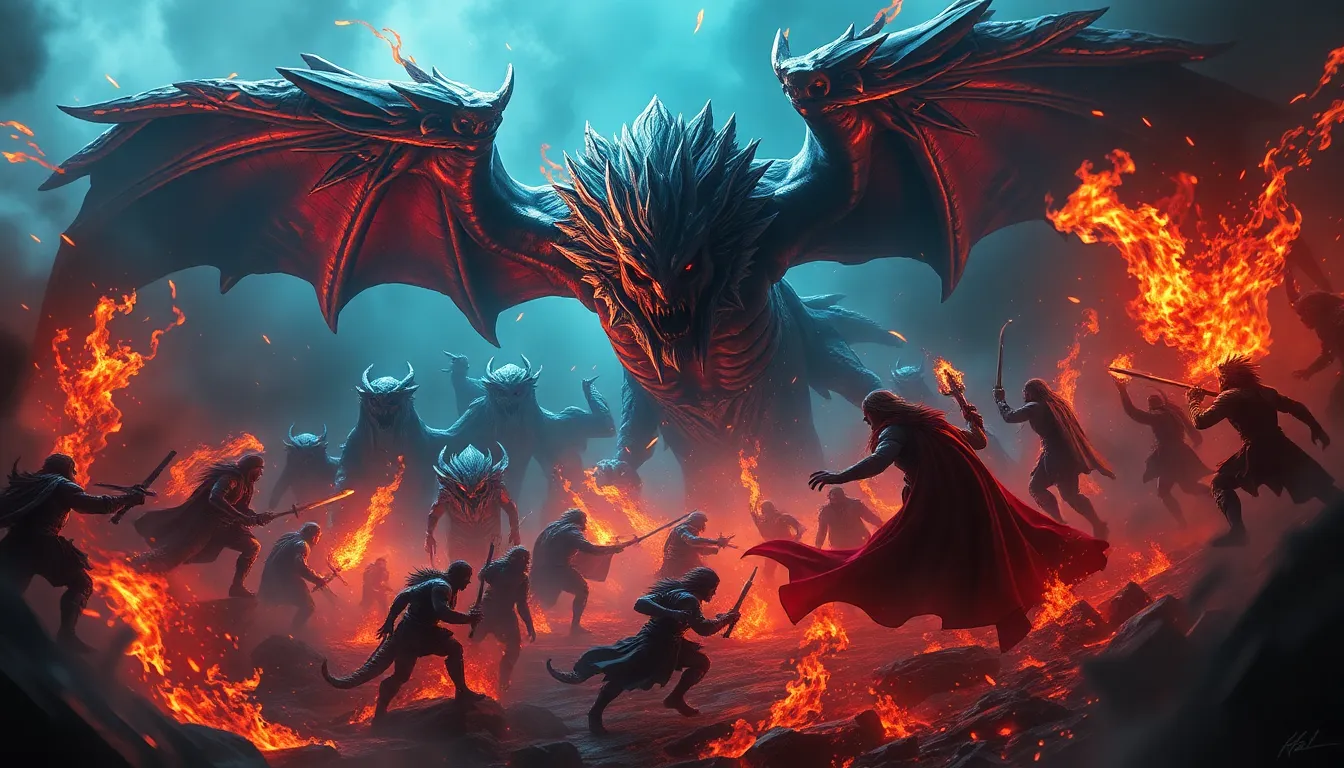The Unseen Forces of Change: Mythic Transformations That Shape Us
Introduction: The Power of Myth in Human Experience
Myth has been a cornerstone of human culture and society for millennia. Defined as a traditional story that explains a natural or social phenomenon, myths serve as a lens through which we interpret our experiences and the world around us. They carry profound significance, shaping not just collective identity but also individual beliefs and values.
Myths can influence personal and collective identity by providing narratives that resonate with our aspirations, fears, and moral dilemmas. Through storytelling, myths frame our understanding of reality, enabling us to navigate our lives with a sense of purpose and belonging.
The Role of Archetypes in Mythical Transformation
Carl Jung introduced the concept of archetypes as universal symbols and themes that recur across cultures. These archetypes play a crucial role in mythical transformation, representing fundamental human experiences. They resonate with our psyches and help us make sense of our journeys.
- The Hero: The protagonist who embarks on a journey, faces challenges, and often transforms in the process.
- The Mentor: A wise figure who provides guidance and support to the hero.
- The Shadow: Represents the darker aspects of the self that the hero must confront and integrate.
These archetypes not only shape the narrative structure of myths but also facilitate personal growth by reflecting the challenges and transformations we encounter in our lives.
Cultural Myths: Reflections of Societal Values and Norms
Cultural myths serve as mirrors reflecting the values and norms of the societies that create them. They provide insights into collective beliefs and social behaviors, often reinforcing or challenging the status quo.
Major cultural myths include:
- Greek Mythology: Myths that explore human emotions, the divine, and the complexities of fate.
- Native American Myths: Stories that emphasize the interconnectedness of nature and humanity.
- African Myths: Narratives that often convey moral lessons and celebrate communal values.
These myths not only shape identity but also influence how individuals relate to one another and their environment. They serve as a foundation for ethical behavior and communal cohesion.
Personal Myths: The Stories We Tell Ourselves
On an individual level, personal myths are the narratives we construct about our lives. They shape our self-identity and influence our decisions. These stories can empower us or confine us, depending on their nature.
To identify and transform personal myths, consider the following techniques:
- Reflective Journaling: Write about your life experiences and identify recurring themes.
- Storytelling: Share your narratives with others to gain perspective and insight.
- Therapeutic Techniques: Engage in therapy to explore and reshape limiting beliefs.
By recognizing and re-authoring our personal myths, we can foster a more authentic and fulfilling existence.
Myth and Change: How Transformations Are Narrated
Myths often encapsulate the process of change, typically through structures like the hero’s journey. This narrative framework illustrates a protagonist’s transformation through trials and tribulations.
Key elements of these narratives include:
- Conflict: The challenges that propel the hero into action.
- Resolution: The eventual overcoming of obstacles, leading to growth and transformation.
These elements highlight the significance of conflict as a catalyst for change, suggesting that personal and collective transformations often arise from adversity.
The Influence of Modern Media on Mythic Transformations
In contemporary society, films, literature, and digital media play a pivotal role in creating and perpetuating modern myths. These mediums shape our understanding of the world and influence collective narratives.
Social media has further transformed how myths are constructed and shared. It allows for:
- Rapid Storytelling: Myths can evolve quickly, reflecting current cultural dynamics.
- Collective Participation: Audiences can engage in myth-making, adding their voices and perspectives.
This democratization of myth-making can lead to new narratives that resonate with diverse experiences and viewpoints.
Mythical Transformations in Psychological and Spiritual Growth
Mythic narratives are closely linked to psychological theories, particularly in understanding transformative experiences in therapy. They serve as frameworks for individuals to process their experiences and facilitate healing.
Myths can act as tools for:
- Spiritual Awakening: Providing insights and paths for self-discovery.
- Personal Growth: Helping individuals confront their challenges and fears.
By engaging with myths, individuals can navigate their inner landscapes and catalyze profound transformations.
The Intersection of Myth and Science: Understanding Change
Scientific discoveries often intersect with mythic frameworks, offering new ways to interpret complex concepts. Myths can provide a narrative structure that makes scientific ideas more accessible.
Examples include:
- Evolution: The story of life’s development can be framed within a mythic narrative of transformation and adaptation.
- Climate Change: Myths about nature’s balance and humanity’s role can inform our understanding of environmental crises.
By integrating myth with scientific understanding, we can foster a more holistic view of change and its implications.
The Future of Myth: Emerging Narratives in a Globalized World
As societies evolve, new challenges emerge that may reshape existing myths. The interplay of technology and globalization is creating new narratives that reflect contemporary realities.
Predictions for the future include:
- Adaptation of Traditional Myths: Ancient stories may be reinterpreted to address modern issues.
- Creation of New Myths: Emerging technologies and cultural shifts will give rise to entirely new narratives.
These evolving myths will play a crucial role in how individuals and societies navigate the complexities of a rapidly changing world.
Conclusion: Embracing the Unseen Forces of Change
Recognizing the mythic transformations that shape our lives is essential for personal and collective growth. By understanding the power of myths, we can better navigate our identities, relationships, and societal challenges.
We encourage readers to explore their own myths, reflect on the stories they tell themselves, and harness the transformative power these narratives hold. Embrace the unseen forces of change and let them guide your journey towards self-discovery and fulfillment.



